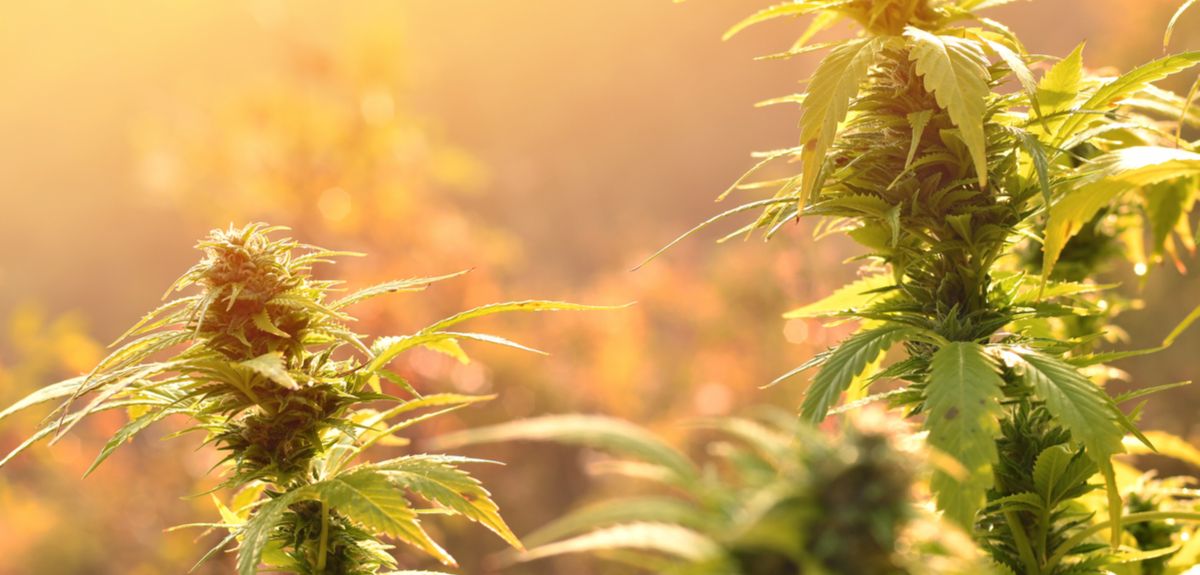
Image credit: Shutterstock
Cannabis use in teens raises risk of depression in young adults
Cannabis use among adolescents is found to be associated with increased risk of depression and anxiety in adulthood.
Cannabis is the most commonly used recreational drug by teenagers worldwide. In Canada, among youth aged 15 to 19 years, the rate of past-year cannabis use is 20.6%, while in England, 4% of adolescents aged 11 to 15 years used cannabis in the last month.
While there has been a lot of focus on the role of cannabis use in psychosis, there has been less attention on whether cannabis use is associated with an increased risk of common mental health disorders, such as depression and anxiety.
Researchers from McGill University and the University of Oxford carried out a systematic review and meta-analysis of the best existing evidence and analysed 23,317 individuals (from 11 international studies) to see whether use of cannabis in young people is associated with depression, anxiety and suicidality in early adulthood.
They found that cannabis use among adolescents is associated with a significant increased risk of depression and suicidality in adulthood (not anxiety). While the individual-level risk was found to be modest, the widespread use of the drug by young people makes the scale of the risk much more serious.
In this study, the estimated population attributable risk (i.e. proportion of cases that would not occur in a population if the factor were eliminated) is around 7%. So, among people 18 to 34 years old, this translates to more than 400,000 cases of depression that are potentially attributable to adolescent cannabis exposure in the US, 25,000 in Canada and about 60,000 in the UK (these figures are calculated assuming that the prevalence of depression in this age group is 8.1%).
Dr. Gabriella Gobbi, Professor, Department of Psychiatry, McGill University and a scientist at the Research Institute of the McGill University Health Centre, states: 'While the link between cannabis and mood regulation has been largely studied in preclinical studies, there was still a gap in clinical studies regarding the systematic evaluation of the link between adolescent cannabis consumption and the risk of depression and suicidal behaviour in young adulthood. This study aimed to fill this gap, helping mental health professionals and parents to better address this problem.'
Professor Andrea Cipriani, NIHR Research Professor of Psychiatry at the University of Oxford, said: ‘We looked at the effects of cannabis because its use among young people is so common, but the long-term effects are still poorly understood. We carefully selected the best studies carried out since 1993 and included only the methodologically sound ones to rule out important confounding factors, such us premorbid depression.
‘Our findings about depression and suicidality are very relevant for clinical practice and public health. Although the size of the negative effects of cannabis can vary between individual adolescents and it is not possible to predict the exact risk for each teenager, the widespread use of cannabis among the young generations makes it an important public health issue.
‘Regular use during adolescence is associated with lower achievement at school, addiction, psychosis and neuropsychological decline, increased risk of motor vehicle crashes, as well as the respiratory problems that are associated with smoking.’
The active ingredient in cannabis,THC, mediates most of psychoactive and mood-related effects of cannabis and also has addictive properties. Preclinical studies in laboratory animals reported an association between pubertal exposure to cannabinoids and adult-onset depressive symptoms. It is thought that cannabis may alter the physiological neurodevelopment (frontal cortex and limbic system) of adolescent brains.
While the review of observational studies was the first to look at the effects of cannabis use in adolescents only, it was not possible to predict the risk at the individual level, nor was it possible to discern information about the dose-dependent risk of cannabis use.
The full paper, ‘Association of cannabis use in adolescence and risk of depression, anxiety and suicidality in young adulthood: A systematic review and meta-analysis,’ can be read in JAMA Psychiatry.
 Expert Comment: Chatbot-driven sexual abuse? The Grok case is just the tip of the iceberg
Expert Comment: Chatbot-driven sexual abuse? The Grok case is just the tip of the iceberg
 New study finds that stopping weight-loss drugs is linked to faster regain than ending diet programmes
New study finds that stopping weight-loss drugs is linked to faster regain than ending diet programmes